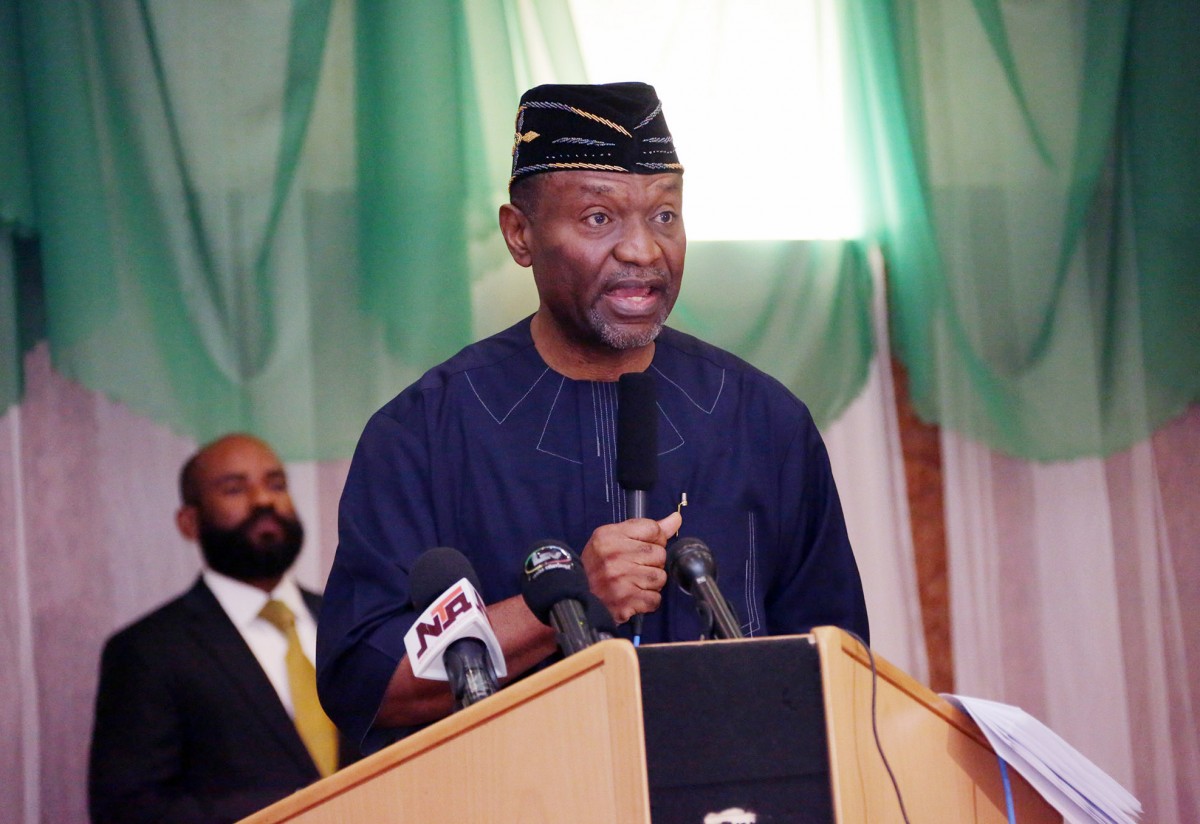The Federal Government is seriously planning to drastically cut down on its borrowing spree in the 2019 fiscal year, as the nation is trying to manage the struggling economy. Nigeria’s penchant for borrowing in the past few years has seen the nation’s debt stock soared in the past few years.
The Minister of Budget and National Planning, Senator Udoma Udo Udoma, revealed this at a public consultation on the 2019-2021 Medium Term Fiscal Framework (MTEF) and Fiscal Strategy Paper (FSP) in Abuja.
He explained that borrowing was critical when the country was short of funds to bring out the economy from the recession it entered in the second quarter of 2016, but that the Federal Government will greatly slow down on borrowing next fiscal year.
According to the Minister:
“Borrowing was directed at capital projects and it worked. That is why you see activities on Lagos-Ibadan rail lines and others.
However, for that level for that level of borrowing, we are taking it down because as revenue picks up, we will rely less on borrowing.”
It will be recalled that the Federal Government through Udo Udoma only a few days ago, at the IMF and World Bank Group meeting in Bali, Indonesia claimed that the nation might seek for more loans, if the need arises, describing Nigeria as one the countries with the lowest debt profiles in Africa.
Could it be that FG heeded IMF’s Warning
The International Monetary Fund (IMF) only last week at the same meeting in Bali, Indonesia warned Nigeria and other Sub-Saharan countries to check their rising levels of debts, diversify their revenue bases or face economic crisis.
The Bretton Wood institution also advised the most populous black nation to guard against the temptation to let higher oil prices delay reforms, warning that despite the recent recovery, oil prices are projected to remain below the 2013 peak.
Nigeria’s Debt Stock Keeps Growing
According to the National Bureau of Statistics (NBS) in its Nigerian Domestic and Foreign Debt report for the second quarter of 2018, Nigeria’s total debt stock as at the end of June 2018 (36 States and Federal Government debt) stood at $73.21 billion (₦22.38 trillion), compared to $74.28 billion (₦22.71 trillion) in the first quarter of the year.
External Debts
According to the NBS report, Nigeria’s total external debt stock stood at $22.08 billion (₦6.75 trillion) as at the end of the period ending June 2018. This shows a quarter on quarter debt growth of 0.05% from $22.07 billion in the period ending March 2018.
However, out of Nigeria’s total foreign debt of $22.08 billion as at the end of the second quarter of 2018, Federal Government accounts for $17.83 billion, which is 80.76% of the total foreign debt stock. The 36 states and the FCT account for the remaining 19.24% of the nation’s total foreign debt portfolio, with a joint debt of $4.25 billion.
Domestic Debts
Meanwhile, the report equally indicates that Nigeria’s total domestic debts as at June 2018 were ₦15.63 trillion ($51.12 billion). This shows a quarter on quarter growth of 24.24% from ₦12.58 trillion in Q1 2018.
The 36 states and FCT accounted for ₦3.47 trillion ($11.37 billion), while the Federal Government was responsible for ₦12.12 trillion ($39.75 billion).











